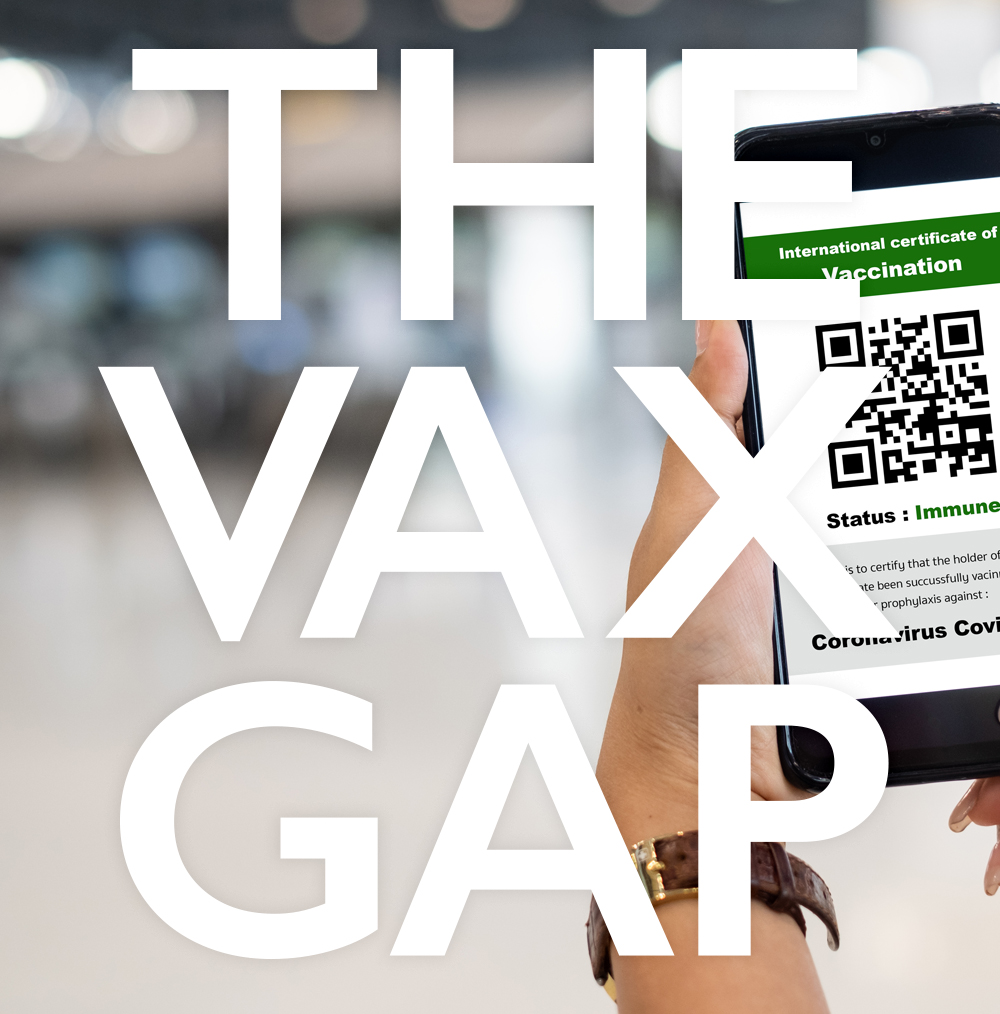
VACCINATION INEQUITY
By Jason Jourdan
Recovery efforts to restore the health of citizens, economies and an iota of collective sanity are yielding changes across the globe. But, as is often the case with change, unintended consequences have arisen. The implementation of vaccine programs has the travel industry rejoicing over prospects of inoculation from the grip of COVID-19 as immunized tourists will be able to travel to more destinations amid fewer restrictions. In a post-pandemic reality, government officials declare proper documentation of one’s vaccination status is the key to opening doors to travel, entertainment, and other social activities.
“Green Passports” are great news, but they also raise the specter of world division along the lines of wealth and vaccine access. These ethical and logistical issues are sounding alarm bells for governments struggling to reopen their countries to travelers. An unintended consequence of requiring vaccine passports may reverse the progress made in reducing global inequity, especially gains in mobility worldwide.
Equally troubling is the amount of available vaccine. Most countries don’t have enough. According to research by the Duke Global Health Innovation Center, high-income nations hold 4.6 billion confirmed doses, while low-middle income nations have access to only 670 million. The World Health Organization has rolled out its COVAX program to close the gap between wealthy and moderate to low-income nations regarding access to vaccines. COVAX is now operational in several countries, but it has a very long way to go. WHO expects to deliver 270 million doses by May of this year. COVAX is one small step to meeting the current need.
This divide in vaccine availability has given rise to the phenomenon of countries using coronavirus vaccines as a form of diplomatic currency. Governments with larger quantities of medicines and means of production are using their supplies for political gain. Russia and China are making vaccines of their own and are actively using their reserves to assert leverage over other nations.
A potentially global moral crisis is dawning as wealthier nations, like European Union countries and the United States, are more likely to reach herd immunity before many low-income countries and reap economic benefits sooner. As world leaders contemplate vaccine passports, the EU has already signaled they will open their borders to vaccinated American travelers this summer.
Similar accords between other countries are laying the groundwork for a more significant social and economic divide. More prosperous nations are benefitting from the use of technology to provide verifiable digital certifications. This advantage will accelerate their plans to open borders to tourism. The ability to receive visitors will widen the economic chasm between affluent countries and developing nations. However, it’s not clear if countries on this path will reach a collective acceptance of all the COVID medicines available.
Silos within the available vaccine supply are forming as those inoculated with the Chinese and Russian vaccines face inequality in determining which countries they can enter. The U.S. and European Union are signaling skepticism of the efficacy of Chinese and Russian-made compounds while other countries are only accepting travelers vaccinated with government-approved medicines.
As leaders grapple with resolving these challenges, the greatest inequity facing the world is time. A planet divided by vaccine nationalism impacts everyone, regardless of vaccine status. If the virus has the opportunity to further mutate in impoverished nations, every country will once again be in the crosshairs of a pandemic.
According to the CDC, travel guidelines are constantly changing, and prudent vacationers will want to monitor their destination’s official tourism website for updates. Even vaccinated individuals should continue practicing safety measures, including social distancing, handwashing, and mask-wearing while traveling. One aspect everyone agrees on is the importance of purchasing travel insurance.
Savvy travelers are balancing the scales against COVID with international travel medical insurance coverage from Point Comfort®. A policy with piece-of-mind benefits is a ‘green passport’ for a range of travel contingencies, including:
- CCOVID-19 Medical Expense Coverage up to the Policy Maximum
- Emergency Medical Evacuation and Repatriation
- Emergency Medical Reunion
- Return of Minor Child
- Emergency Traveler Assistance
Vacationers are getting vaccinated and equipping themselves for post-COVID travel and their role in closing the inequity gap between nations with the coverage of Point Comfort® international travel medical insurance!
